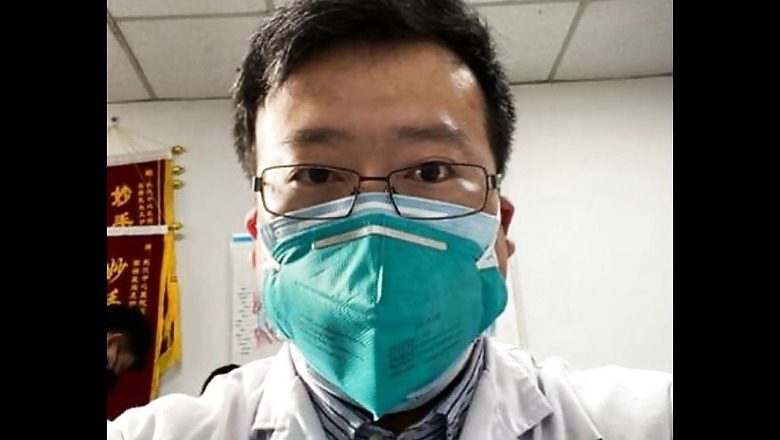
views
It is now officially a crime to spread rumours on social media, at least if you live in China or are a Chinese citizen. The new cyberspace regulations have gone into effect in the country as China continues to battle the Coronavirus, or COVID-19 outbreak. Among the long list of do’s and don’ts released by the Cyberspace Administration of China in the Regulations on the Ecological Governance of Network Information Content, one guideline that truly stands out is the one that reads “spreading rumors and disturbing the economic and social order” under Article 6 which headlines Producers of online information content may not produce, copy or publish illegal information containing the following contents”. This comes at a time when there is a growing line of thought that social media provides a deeper glimpse at what is really happening inside China, something the Chinese media it is believed doesn’t do, as users post videos on various social media platforms including Weibo, and they then get circulated across platforms including Twitter.
According to the latest numbers, there are 89,074 confirmed Coronavirus cases around the world. The global death toll has crossed 3,000 and the Coronavirus cases have been reported in 60 countries. The worst hit is China, with 80,026 cases reported in Mainland China as well as 98 in Hong Kong and 10 in Macau. After China, the worst hit is South Korea with 4,212 confirmed cases followed by Italy clocking 1,694 confirmed Coronavirus cases and 978 reported cases in Iran.
Social media is what has shown us how life is inside the Chinese cities that are under lockdown, including Wuhan, the epicentre of the Coronavirus outbreak. There are numerous videos of how checkpoints inside and outside the cities are being managed, how people are being locked inside their homes with doors welded shut and how the police are arresting anyone who isn’t wearing a mask when outdoors. Equally, there is a lot of misinformation on social media about the Coronavirus, what measures China is taking and the possible reasons behind the spread. These rumours and misinformation can lead to panic, and in cases, much worse.
A lot of the mistrust with official reports emerging out of China perhaps stem from the fact that the initial warnings by Dr Li Wenliang, a doctor in Wuhan at the time, had warned of the upcoming epidemic—that was later confirmed, much to the world’s horror. The doctor received more than a severe reprimand with authorities accusing him of spreading “false information” and “seriously disrupting social order.” Dr Li Wenliang passed away in February, killed by the same virus he wanted to warn the world about.
A lot of this eventually boils down to what Chinese authorities consider a rumour worth punishing. And what they may feel is “disturbing the economic and social order” of the country. It could be anything and everything—your guess on the exact definition is as good as anyone. And the crackdown had started even before these rules became official. In January, the US-based advocacy group Chinese Human Rights Defenders had released data which indicated that the Chinese authorities had punished 416 netizians in China for spreading rumours. “Human rights must not be a casualty of the government’s work to contain the coronavirus outbreak that has killed nearly 200 people and affected millions. Free flow of information in the press and on the Internet, participation of civil society, and facilitated movement of supplies and first responders, are necessary for an effective response to this global health emergency,” the CHRD had noted at the time.
The South China Morning Post reports that among the new rules, it is now also illegal for netizians to threaten people, insult people or publish the person information about anyone else on the internet. It is now also illegal for anyone to use new technologies such as deep learning and virtual reality (VR) to break the law.




















Comments
0 comment